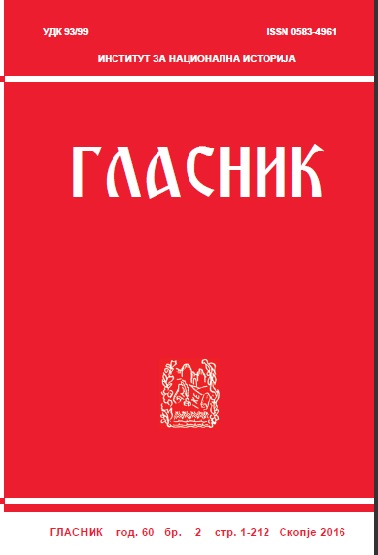SERBIAN MINORITY IN THE REPUBLIC OF MACEDONIA AFTER 2001 – MAIN ISSUES
SERBIAN MINORITY IN THE REPUBLIC OF MACEDONIA AFTER 2001 – MAIN ISSUES
Author(s): Mirella Korzeniewska-WiszniewskaSubject(s): Transformation Period (1990 - 2010), Present Times (2010 - today), Ethnic Minorities Studies
Published by: Институт за национална историја
Keywords: Serbs in Macedonia; the Serb minority in the Balkans; Serbian political parties in Macedonia
Summary/Abstract: Serbs in Macedonia (a country with two million citizens) are small and represent less than two percent of the population. Until the signing of the Ohrid Framework Agreement in 2001. they did not have the status of a national minority, which was supplemented by special provisions of this agreement. This does not mean solving all the problems of this population, but creating a formal basis for the implementation of minority rights, especially at the moment when Macedonia applied for membership in the European Union, which gives special emphasis to the problem of minority issues in the region. The biggest problems that Serbs faced in Macedonia after 2001 were the following: issues of the education system, the lack of protection of Serbian culture and tradition, in order to strengthen the assimilation process. In addition, after 2001, the Serbian government and political organizations began activities to preserve Macedonia's multiethnic character, seeking to prevent the formation of a binational state (Macedonian-Albanian). The text aims to present the situation of Serbs in the Republic of Macedonia after 2001 and the changes in terms of their position and their participation in the life of the Macedonian state.
Journal: Гласник
- Issue Year: 60/2016
- Issue No: 2
- Page Range: 31-46
- Page Count: 16
- Language: English

